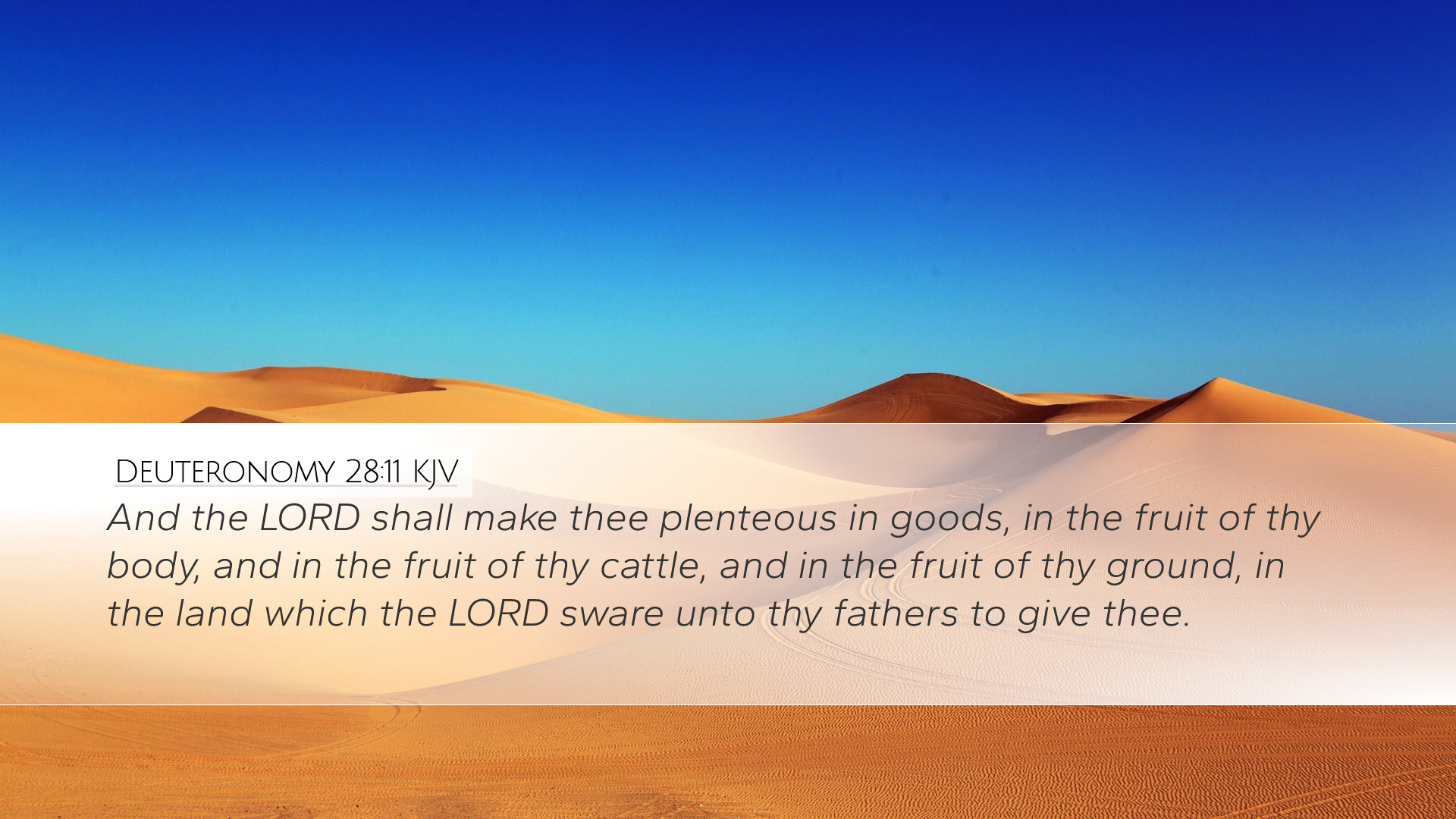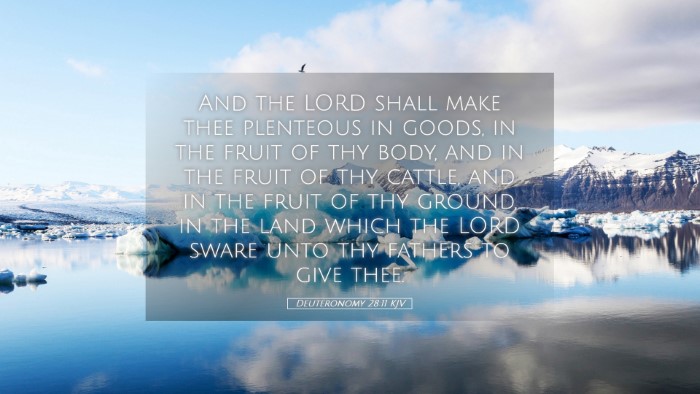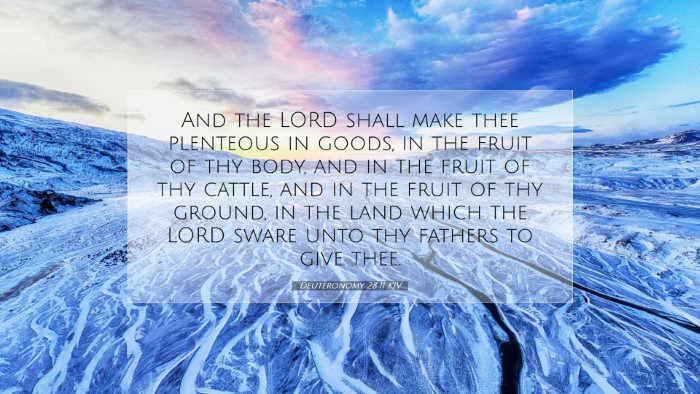Commentary on Deuteronomy 28:11
Verse: "And the LORD shall make thee plenteous in goods, in the fruit of thy body, and in the fruit of thy cattle, and in the fruit of thy ground, and in the land which the LORD sware unto thy fathers to give thee."
Introduction
Deuteronomy 28 stands as a critical chapter that outlines the blessings and curses tied to obedience and disobedience to God's commands. In Deuteronomy 28:11, the promise of abundance serves as a significant highlight, reflecting a covenant relationship between God and Israel. This commentary aims to synthesize insights from various public domain commentaries, providing meaningful interpretations that serve pastors, students, theologians, and scholars alike.
Contextual Background
The Book of Deuteronomy is fundamentally a record of Moses' final speeches to the Israelites before they enter the Promised Land. It emphasizes the necessity of adhering to God's laws and the dire consequences of neglecting them. Deuteronomy 28 is pivotal, as it delineates the blessings that will accrue to Israel as a result of their fidelity to God's commandments.
The Amplification of Blessings
In this verse, Moses articulates a promise from God centered around abundance in various life aspects:
- Goods: Represents material wealth, suggesting that faithfulness will lead to prosperity.
- Fruit of the body: Indicates familial blessings and the importance of progeny.
- Fruit of cattle and ground: Refers to agricultural and economic productivity.
Theological Implications
This verse encapsulates profound theological truths concerning divine provision and human responsibility:
- Divine Sovereignty: The promise reflects God's overarching control and His intent to bless those who obey Him.
- Covenant Faithfulness: God's covenant with the patriarchs, particularly Abraham, Isaac, and Jacob, underscores His promises and the expectation of reciprocation through obedience.
- Holistic Blessing: The wide-ranging nature of blessings indicates that God’s providence can affect all dimensions of life—spiritual, familial, economic, and social.
Commentators' Insights
Matthew Henry
Matthew Henry notes that the blessings promised in this verse reflect a comprehensive flourishing that God desires for His people. He emphasizes the interconnectedness of spiritual and material wellbeing, suggesting that true prosperity comes when one is aligned with God's will. Henry posits that such blessings are not just for individual gain, but for the community's upliftment, encouraging a view of prosperity that is communal rather than merely individualistic.
Albert Barnes
Albert Barnes places significant emphasis on the “plenteous in goods” aspect, interpreting it as a notion of divine favor that results in economic and agricultural blessings. He highlights the importance of the land, which was a central aspect of Israelite identity, affirming that the prosperity of the land was intrinsically linked to the people's relationship with God. Barnes asserts that obedience to God’s commandments would cultivate an environment where such blessings could thrive.
Adam Clarke
Adam Clarke delves deeper into the elements of the verse by examining the Hebrew terms used. He elaborates that “plenteous” implies not merely quantity but also quality of blessings. Clarke also suggests that the verse provides a blueprint for understanding the nature of God’s blessings—comprehensive, abundant, and life-giving. He draws parallels between this and Christ’s teachings on abundance in the New Testament, indicating a continuity in the biblical narrative regarding God's desire for human prosperity.
Practical Application
For pastors and theologians today, Deuteronomy 28:11 can serve as a vital reminder of the relationship between obedience to God and experiencing His blessings:
- Encouragement in Discipleship: The verse serves as a motivation for believers to pursue a life aligned with God's teachings.
- Teaching on Stewardship: The acknowledgment of blessings should inspire responsible stewardship over one’s resources and community.
- Holistic View of Prosperity: It emphasizes that blessings from God are meant for the whole person and community, not just for individual gain.
Conclusion
Deuteronomy 28:11 presents an essential teaching about God’s abundant provision tied to obedience. The insights from Matthew Henry, Albert Barnes, and Adam Clarke encapsulate the verse's theological depth and practical significance. As believers reflect on this promise, they are encouraged not only to seek God’s blessings but also to cultivate lives that contribute to the flourishing of all aspects of their existence. This verse is a beacon of hope and direction for those committed to walking in accordance with God’s will.


